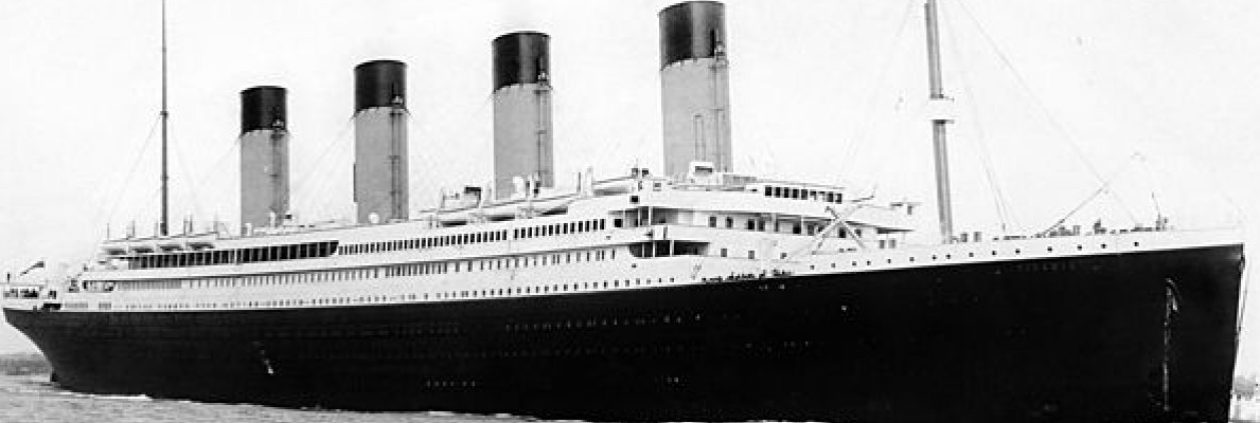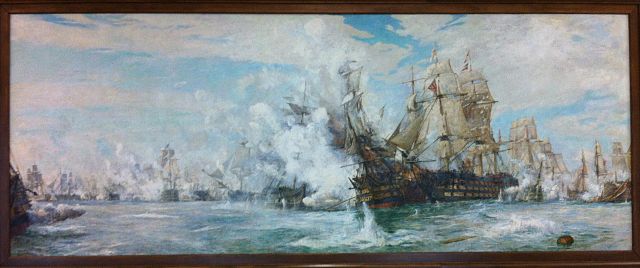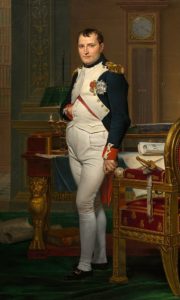
Jacques-Louis David (1748–1825)
Public Domain/Wikimedia Commons
French Emperor Napoleon Bonaparte invaded Russia on 24 June 1812 in retaliation for Czar Alexander I not accepting Bonaparte’s Continental System. Napoleon assembled the largest fighting force up to that time called the Grande Armee. With over 500,000 soldiers and staff, it marched into Russia seeking a quick victory. It was not to be. The Russian Army under General Mikhail Kutuzov was in retreat refusing a full-scale engagement against the powerful French. As Russia troops retreated, they burned everything leaving nothing for the French to find.
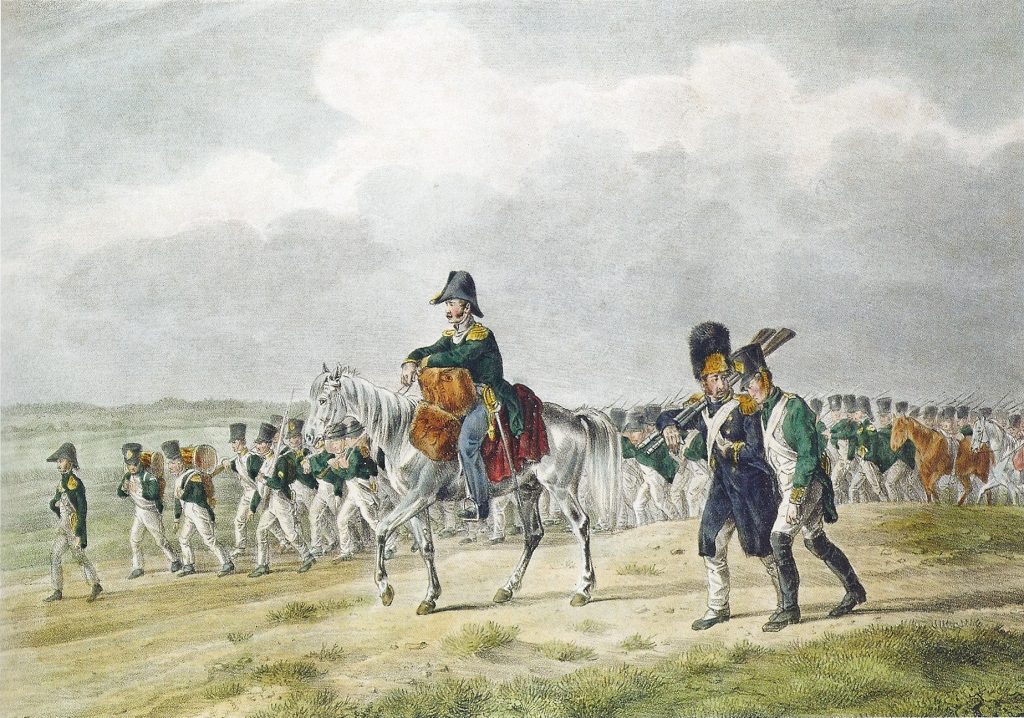
Albrecht Adam (1786 – 1862)
Public Domain via Wikimedia Commons
By September, Napoleon had engaged the Russians at Battle of Borodino. The battle was indecisive but resulted in large losses on both sides. On 14 September he arrived in Moscow to find it empty as the people had evacuated. The Russian Army too had left leaving the city to Napoleon. With winter approaching, Napoleon decided to rest and use it for his winter quarters. Russian partisans though set fires in the city the next day resulting in the quarters he had selected destroyed. He waited for a month hoping for a surrender which never came. Now with winter closing in, Napoleon decided to leave. The retreat though was more difficult than they could have imagined.
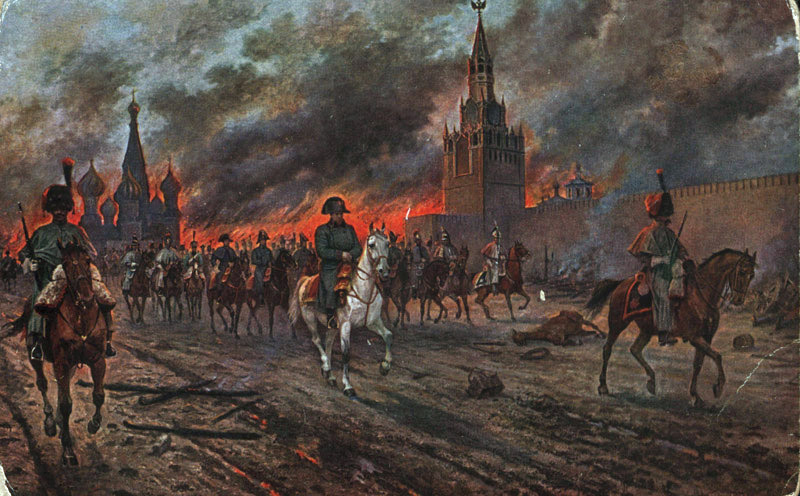
Viktor Mazurovsky (1859–1944)
Public Domain via Wikimedia Commons
An early winter set in making it harder on his troops and food was rationed. The Russians, it seems, had not fully retreated, and began attacking the troops in the rear. Cossacks with very sharp lances attacked ruthlessly. They made it to the Berezina River in November but found Russians waiting for them. Using makeshift bridges, Napoleon and his troops started crossing but the Russians attacked. Napoleon burned the bridges stranding over 10,000 on the other side to be captured or killed by the Russians. Napoleon, in a hurry to return to Paris, would eventually leave his troops behind. The remaining force would eventually return home but fewer than a 100,000 made it back home. The loss of over 400,000 was staggering and called into question his leadership of the French Empire.

Public Domain (via Wikimedia Commons)
Aftermath
The disastrous invasion of Russia has long been studied by historians and military strategists. His basic idea of invading was sound, but he underestimated how long it would take and the will of the Russians to make him pay dearly for every inch he gained. Napoleon thought it would be a quick victory, but it turned into a long painful retreat with an early winter, few food supplies, and his army being attacked by Russians. If you read accounts of those who survived, it is truly horrific the conditions they had to retreat under. Dead animals used for fuel; bodies stacked in windows for insulation. If you recall Star Wars: The Empire Strikes Back scene where Han Solo rips open his now dead ride so they can crawl inside it for warmth, this happened for real here.
His defeat in Russia strengthened his enemies. Austria, Britain, Prussia, and Sweden would now ally with Russia against Napoleon. British forces under Wellington were slowly but steadily pushing the French out of Spain. While Napoleon would have some victories, two defeats hurt his reign enormously. The Battle of Vittoria in Spain on 21 June 1813 would end French domination of Spain. His brother Joseph that he had put on the throne, was forced to flee for his life. Sadly, the royal crown worn by Spanish kings was lost in the melee of the retreat and never to be found again. And in October 1813, he suffered a crushing defeat in the Battle of Leipzig. Paris would fall the following March forcing him into exile. He would briefly return in 1815 but be defeated again in the Battle of Waterloo
Invading Russia has not proven successful for any conquering general. You might get initial successes, as Hitler did, but it seems to always turn around against the invader. Hitler, like Napoleon, thought the campaign would be quick. Instead after their initial victories, Operation Barbarossa ran into real problems. General Franz Halder realized he had sorely underestimated how many divisions the Russians could field. And because of the long distances involved, it became very hard for Germans to hold their lines. Moscow was in at sight at one point, but they never got there due to the long expanse of territory, supply issues, and underestimating the strength of Russia. Like Napoleon, the German forces were stalled. Halder believed without a powerful lightning strike, there was little chance for success. Owing to policy and strategy differences with Hitler, he was dismissed. The damage was done and the losses substantial. The Russians would push eventually the Germans out of their country and follow them all the way back to Berlin.
Sources:
Sullivan, M. (2024b, June 20). Napoleon’s Grande Armée invades Russia. HISTORY. https://www.history.com/this-day-in-history/napoleons-grande-armee-invades-russia
Greenspan, J., & Greenspan, J. (2023, August 11). Why Napoleon’s invasion of Russia was the beginning of the end. HISTORY. https://www.history.com/news/napoleons-disastrous-invasion-of-russia
Knighton, A. (2017, July 15). 6 reasons why Napoleon invaded Russia. Warhistoryonline. https://www.warhistoryonline.com/napoleon/6-reasons-napoleon-invaded-russia.html
Suggested Reading
Allen, W. S. (1984). The Nazi seizure of power: The Experience of a Single German Town, 1922-1945. Franklin Watts.
De Segur, P. (2008). Defeat: Napoleon’s Russian Campaign. New York Review of Books.
Foord, E. (2022). Napoleon’s Russian campaign of 1812. Independently published.
Engelmann, B. (1986). In Hitler’s Germany: Daily Life in the Third Reich. Pantheon.
Gilbert, Martin. The Second World War: A Complete History. Macmillan, 2004.
Lieven, D. (2011). Russia against Napoleon: The True Story of the Campaigns of War and Peace. National Geographic Books.
Titanic News Channel is a participant in the Amazon Services LLC Associates Program, an affiliate advertising program designed to provide a means for sites to earn advertising fees by advertising and linking to Amazon.com.
